 Petzlover
Petzlover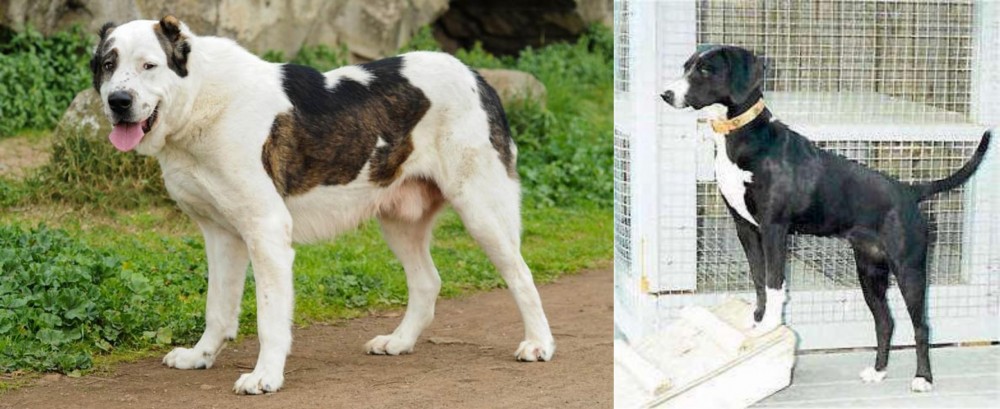 Central Asian Shepherd is originated from Russia but Stephens Stock is originated from United States. Central Asian Shepherd may grow 20 cm / 8 inches higher than Stephens Stock. Central Asian Shepherd may weigh 8 kg / 17 pounds lesser than Stephens Stock. Both Central Asian Shepherd and Stephens Stock has almost same life span. Central Asian Shepherd may have more litter size than Stephens Stock. Central Asian Shepherd requires Moderate Maintenance. But Stephens Stock requires Low Maintenance
Central Asian Shepherd is originated from Russia but Stephens Stock is originated from United States. Central Asian Shepherd may grow 20 cm / 8 inches higher than Stephens Stock. Central Asian Shepherd may weigh 8 kg / 17 pounds lesser than Stephens Stock. Both Central Asian Shepherd and Stephens Stock has almost same life span. Central Asian Shepherd may have more litter size than Stephens Stock. Central Asian Shepherd requires Moderate Maintenance. But Stephens Stock requires Low Maintenance
 This large dog breed is a native to the wilds of Central Asia, where it has been guarding and protecting livestock for thousands of years. In fact the Central Asian Shepherd is one of the oldest dog breeds of the world.
This large dog breed is a native to the wilds of Central Asia, where it has been guarding and protecting livestock for thousands of years. In fact the Central Asian Shepherd is one of the oldest dog breeds of the world.
Early records as to the precise origin of the breed aren’t available. There are suggestions that the breed descended from ancient Middle Eastern livestock guarding breeds, while the other suggests the dog is descended from the Tibetan Mastiff. It is almost certain that the dog was domesticated from the Wolf.
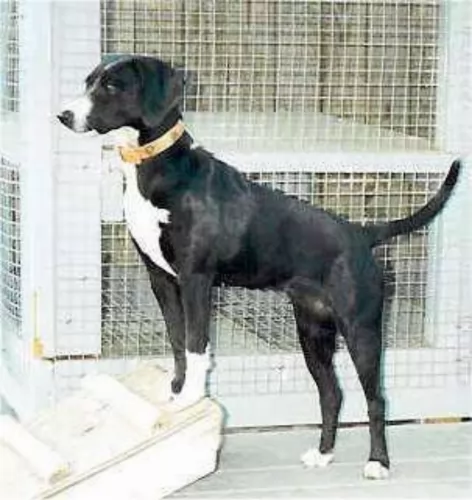 The Stephens Stock is a member if the Cur dog breeds. They are a scent hound bred in southeastern Kentucky by the Stephen’s family. For generations the dogs were simply known as the “little black dog”. The Cur breeds are dogs with a mixture of ancestry and the Stephens Cur is no different. However, the name Cur now means a working dog from the South in the United States. They were known as hunting and guard dogs, chasing wild boar, squirrel and raccoon. They were also called the Mountain Curs throughout Kentucky, Tennessee and Virginia.
The Stephens Stock is a member if the Cur dog breeds. They are a scent hound bred in southeastern Kentucky by the Stephen’s family. For generations the dogs were simply known as the “little black dog”. The Cur breeds are dogs with a mixture of ancestry and the Stephens Cur is no different. However, the name Cur now means a working dog from the South in the United States. They were known as hunting and guard dogs, chasing wild boar, squirrel and raccoon. They were also called the Mountain Curs throughout Kentucky, Tennessee and Virginia.
These mountain working dogs came close to extinction by the 1940’s but four separate breeders set out to save the Mountain Curs. They were the founders of the Mountain Cur Club and involved Woody Huntsman of Kentucky, Carl McConnel of Virginia, Dewey Ledbetter of Virginia and of course Hugh Stephens of Kentucky. Later the name of the club was changed to the Original Mountain Cur Breeders Association or OMCBA. The Mountain View Cur, the Treeing Cur and the Stephens Stock Cur were the results of their efforts.
In the 1970’s Stephen’s decided that his Cur was different from the original Mountain Curs and should be a separate breed. He formed the Stephen’s Breeders Association and the breed was recognized as distinct from other Curs. However, it was not recognized by the UKC (United Kennel Club) until 1998.
 The Central Asian Shepherd is a large dog, standing at up to 70cm in height and weighing in the region of 50kg. The dog is powerfully built and muscular, with the tail being traditionally docked to a short bob. Undocked, the tail is naturally long, thick at the base and tapering down. When relaxed, the tail is carried low, but when he becomes alert and excited, the tail is up and curved.
The Central Asian Shepherd is a large dog, standing at up to 70cm in height and weighing in the region of 50kg. The dog is powerfully built and muscular, with the tail being traditionally docked to a short bob. Undocked, the tail is naturally long, thick at the base and tapering down. When relaxed, the tail is carried low, but when he becomes alert and excited, the tail is up and curved.
The ears of this dog are also traditionally cropped close to the head so that the dog almost appears to have no visible ears. This practice is also falling away and the natural ears of this breed are small and set at- or below eye level.
The brown eyes are small to medium size and are deep set. The Central Asian Shepherd Dog is double-coated with short to medium length hair and can be found in quite a few different colors such as tan, white, black, grey, brindle, ticked or a blend of these colors.
You have to be careful about where you buy your Asian Shepherd from as these dogs can be prone to aggression. With good breeding however, the dog is evenly tempered. As a first time dog owner, this shouldn’t be your first choice as it is a dominant, wilful, territorial, independent dog who will require a tough, firm, strong owner. Training and socialization are imperative to ensure he becomes obedient. He is then capable of forming close and strong bonds with his master, becoming a loyal and devoted pet. He also makes an excellent guard dog.
He is a protective dog breed, and once trained can get on well with children and other pets. He is the kind of dog that you will want to supervise around small children.
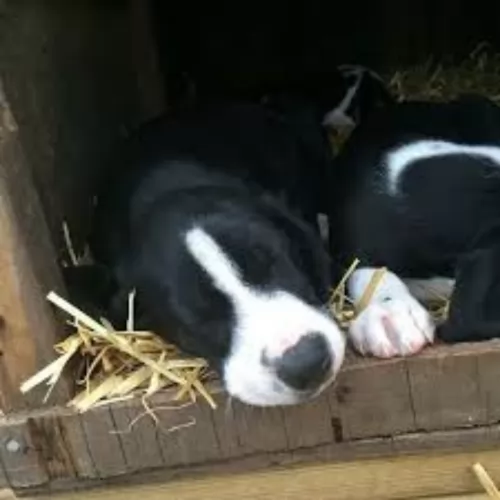 The Stephens Stock Cur is a breed of medium size, dark dogs – either very dark grey or black. Their heads are domed, and the muzzle is short with dark eyes. The breed’s chest is broad and deep with a neck of medium length and either a rough or smooth coat. They are smaller than the other Curs like the Black Mouth Cur or the Mountain View Cur.
The Stephens Stock Cur is a breed of medium size, dark dogs – either very dark grey or black. Their heads are domed, and the muzzle is short with dark eyes. The breed’s chest is broad and deep with a neck of medium length and either a rough or smooth coat. They are smaller than the other Curs like the Black Mouth Cur or the Mountain View Cur.
They are strong and capable of treeing their prey. Their body is longer than it is high, and they have powerful and long legs. Their appearance is sleek and elegant. The nose is dark and square, and their stance is alert and that of a watchdog. This is an athletic hunting dog that is aggressive in the field and chilled at home.
 It is important for those interested in the Central Asian Shepherd Dog as a pet to do some research on the breed. For instance this is a large dog that has been used for fighting.
It is important for those interested in the Central Asian Shepherd Dog as a pet to do some research on the breed. For instance this is a large dog that has been used for fighting.
While he can’t be described as being overly aggressive, you do need to be aware of his history, especially when you have small children in the home.
This dog is intelligent and confident too while also being exceptionally protective, and therefore he makes a good watchdog.
It is essential to have your Central Asian trained and socialized, and then he becomes far more relaxed and obedient, making him a loyal, loving guardian and friend.
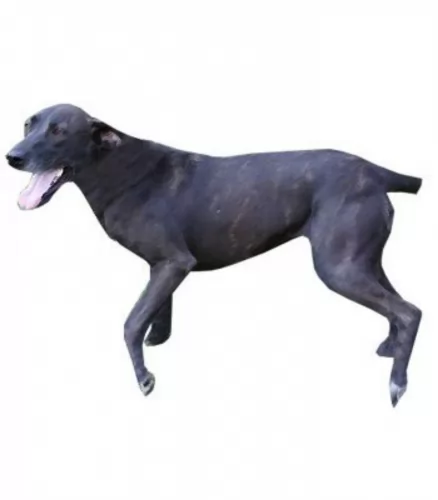 1. Children friendliness - They are tenacious on the hunt but once at home they love children.
1. Children friendliness - They are tenacious on the hunt but once at home they love children.
3.Adaptability They are adaptable if you can get them the exercise, they need every day. They won’t do well in an apartment without going to play and run somewhere else every day.
 The Central Asian Shepherd doesn't have any hereditary ailments and he is generally a healthy, robust breed.
The Central Asian Shepherd doesn't have any hereditary ailments and he is generally a healthy, robust breed.
Large breeds are always prone to hip- and elbow dysplasia, an abnormal development of hip and elbow, brought about by a number of factors such as genetics, the wrong diet and rapid growth with some large puppies.
A dysplastic hip or elbow doesn’t move smoothly as it should, and this results in joint inflammation and pain. Symptoms can include loss of muscle mass, pain when moving around and difficulty with standing up again once your pet lies down.
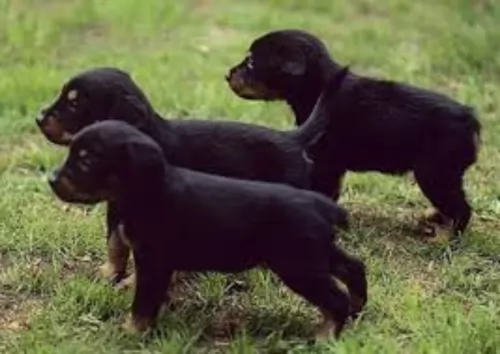 The Stephens Stock Cur is a fairly healthy breed, fairly isolated in the hills and mountains of Kentucky and Tennessee. They are prone to a few health conditions but there are no genetic and breed specific issues.
The Stephens Stock Cur is a fairly healthy breed, fairly isolated in the hills and mountains of Kentucky and Tennessee. They are prone to a few health conditions but there are no genetic and breed specific issues.
• Ear and Eye Infections. Keep them clean and keep debris out of both ears and eyes after hunting.
 Central Asians are large dogs and when he is looked after well he can reach up to 15 years of age.
Central Asians are large dogs and when he is looked after well he can reach up to 15 years of age.
It is important to see that he receives top quality, size-specific food, of which he eats a lot, and that it has all the vitamins and minerals he needs for his size.
A puppy will need high energy foods because of their energy. As he grows bigger, protein will become imperative. It is always a treat for your pet to add in some brown rice, vegetables and cooked chicken into his kibble from time to time.
Raw meat can be expensive, but if you can, it is important to ensure that your large pet gets some raw meat into his diet too, to keep his skin and coat healthy and to ward off disease. Make sure he has non-stop access to a bowl of fresh, cool water.
As previously mentioned, the coat of the Central Asian Shepherd can be fairly short but it can also be medium length. He isn't going to require any exceptional grooming but you will certainly need to give him a good brush twice a week, more so in his shedding periods. This will rid him of loose hair and keep his coat free of tangles and matting.
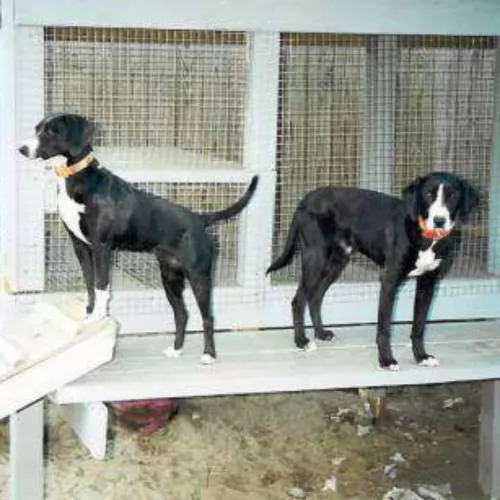 1.Feeding the puppy -Feed puppies a quality food desired for medium breed, high energy dogs. Puppies should eat 3 times a day about a total of 2 cups.
1.Feeding the puppy -Feed puppies a quality food desired for medium breed, high energy dogs. Puppies should eat 3 times a day about a total of 2 cups.
2.Feeding the adult Feed a high quality dog food with plenty of protein and designed for medium size dogs. Feed a total of 3 cups over 2 meals a day.
4. Games and Exercises – This is a very high energy treeing hunting dog with remarkable speed and agility. They need exercise – both physical and mental. One walk a day will not do it for these dogs. Have a fenced in yard or take them to organized activities like field trials, agility, flyball, hunting, search and rescue or barn hunt. They love to hunt with their people.